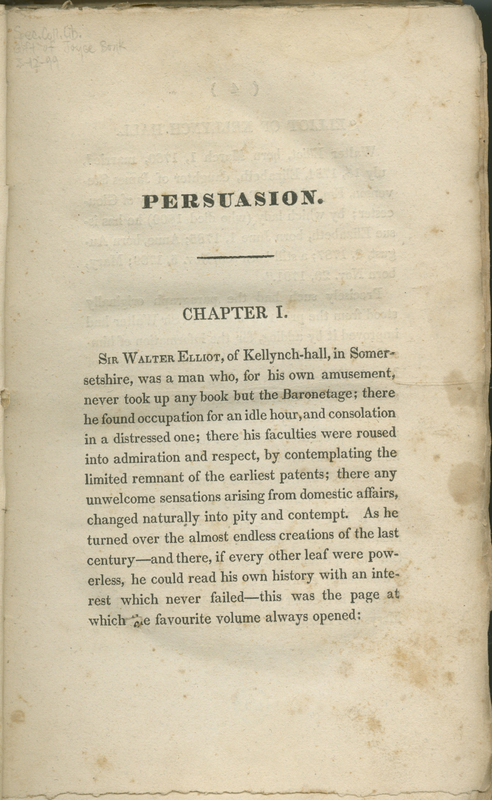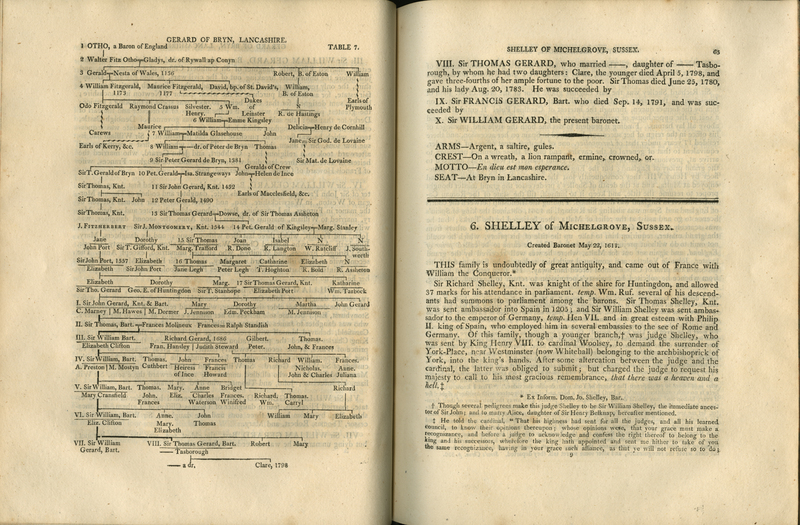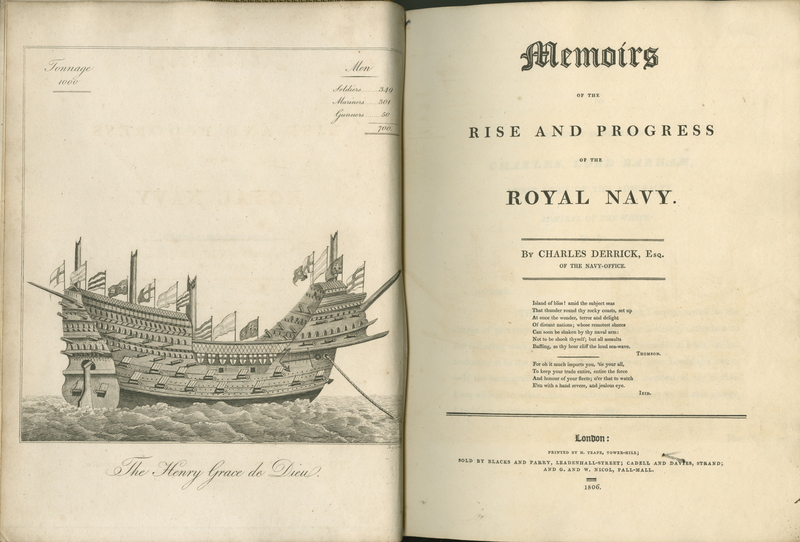Social Mobility
In her last completed work, Austen turned away from village-centered life to explore new networks of social relationships based on profession and personal merit, rather than inheritance. Persuasion opens with Sir Walter Elliot reading his family history in The Baronetcy, but as the story progresses, both the protagonist Anne Elliot and the narrative itself moves away from the confines of Kellynch. When Anne moves into the Musgroves’ orbit at Uppercross, she finds satisfaction in her usefulness to her sister, nephews, and the extended family.
Even encountering her one-time fiancé, Captain Wentworth, comes with pleasures as well as pains. At Lyme, Anne meets Captain and Mrs. Harville, and her long-standing regret that she was persuaded to end her engagement with the then-penniless Captain Wentworth is joined by further regret that she missed the opportunity to be part of a naval brotherhood of generous hospitality and sincere friendship. Fortunately, events conspire to bring Anne a second youth and a second chance at happiness. By the end of the novel, she and Captain Wentworth hold the distinction of being the only non-landowning and non-clerical couple among Austen’s published protagonists.
Sir Walter Elliot is obsessed with his own importance. In the face of mounting debts, he is unwilling to take Lady Russell’s sensible advice because he believes that living less extravagantly would be beneath his dignity. The irony and humor of Sir Walter’s character comes not only from his excessive pride but also from its relatively thin basis. Baronet is the lowest of hereditary ranks, and although Sir Walter is dismissive of the “creations of the last century,” his own title, bestowed during the Restoration, is only slightly older.
Anne Elliot’s marriage to Captain Wentworth does indicate Austen’s recognition of changes coming to her social world, but even within the realm of landed wealth, Georgian England saw considerable movement up and down the social ladder, which is reflected in her novels. While Edmund Bertram feels a vocation to the Church, many other younger sons found it an unfortunate necessity. Edward Ferrars loses the fortune and status that would have been his when his mother disinherits him. Mr. Bingley inherits wealth without an estate, suggesting it came from trade. Thus, Caroline Bingley’s distaste for the Bennets’ Cheapside relatives is both particularly unkind and full of irony because her own family may not be far removed from such connections.
In the late 1880s, the British government began prioritizing shipbuilding and constructed an extensive dry dock system at Portsmouth for repairs. The patriotic fervor of the Napoleonic Wars provided an eager audience for works such as Charles Derrick’s Memoirs, which offers a history of the Royal Navy from the time of Henry VII to 1805 and includes detailed information about ships built and naval innovations made during each monarch’s reign. In Persuasion, similar naval fervor inspired by attraction to Captain Wentworth leads Mary and Louisa Musgrove to the contemporary navy lists, in which the handsome Captain’s bravery is revealed.
Unlike in the army, naval promotion could not be purchased, but was won through success in battle or the intervention of interested parties in the admiralty. This is the case, for example, with William Price’s promotion in Mansfield Park, for which he is indebted to Henry Crawford’s Admiral uncle. Thus, the navy was not entirely a meritocracy, but officers could earn significant prize money for the capture of enemy ships and cargo. The most successful, including Captain Wentworth, might emerge from war with a very comfortable income, prepared to challenge the hereditary gentry for prominence in the community and nation.
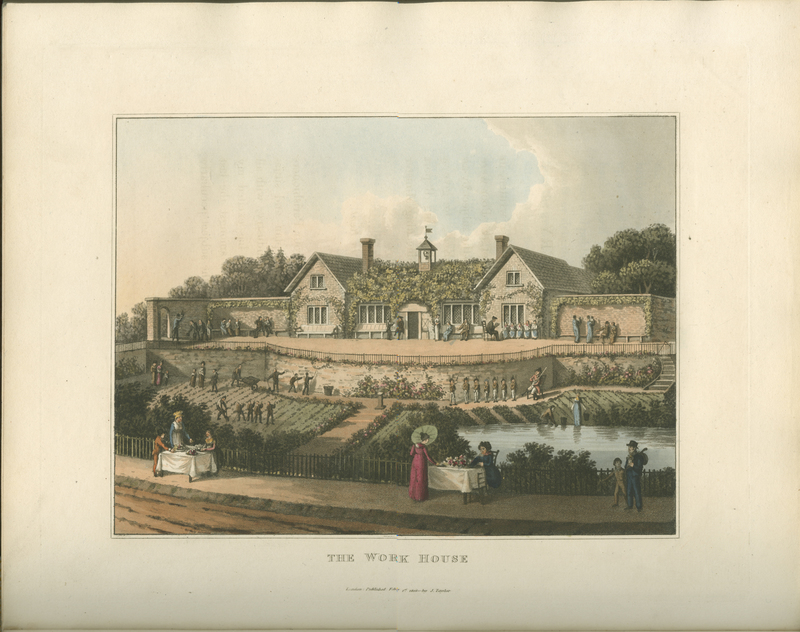
Poverty
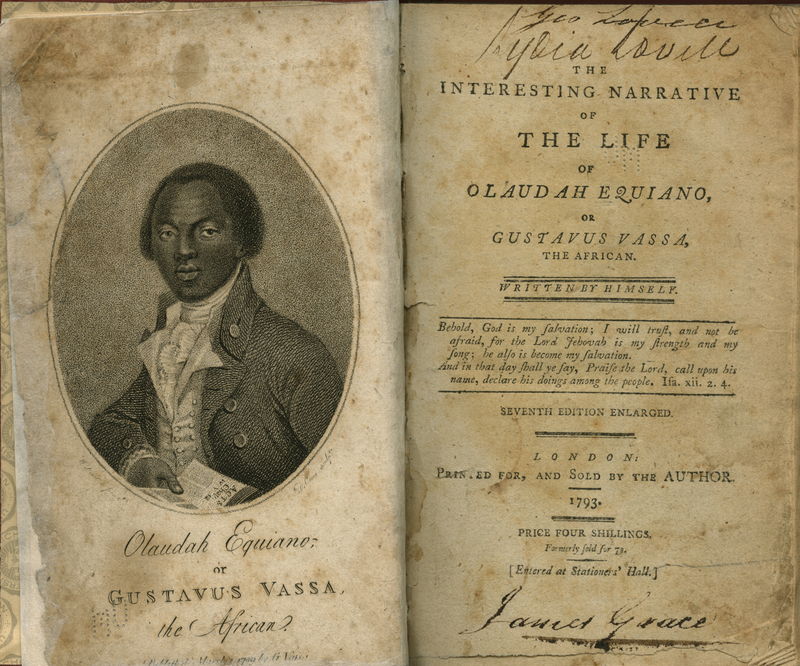
Abolition

